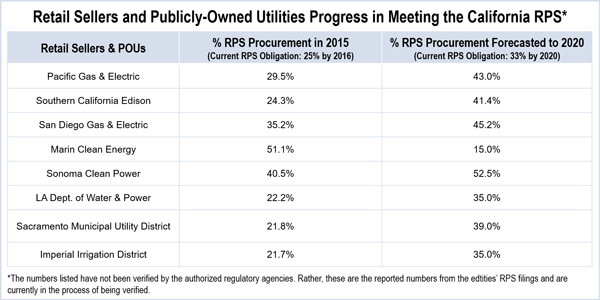By Jason Fordney
SACRAMENTO, Calif. — A California State Senate bill that would require utilities to obtain 100% of their electricity from zero-carbon sources by the end of 2045 advanced through a key committee in the legislature’s lower house on Wednesday.
The Assembly Utilities and Energy Committee voted 10-4 along party lines to pass SB-100, which the Senate passed on a 25-13 vote in May.
The bill retains qualifying resources such as wind, solar, geothermal and others currently under the state’s renewable portfolio standard for the first 60% of the requirement, a threshold power sellers must meet by 2030. It does not specify what resources will qualify for the additional 40% target after 2030, except that they be zero carbon. This would keep hydroelectric plants larger than 30 MW in the mix.
Natural gas-fired generation currently accounts for about 36% of California’s electricity mix, followed by renewables (25%), large hydro (10%) and nuclear (9%), according to state data. Imports of coal-fired power still make up about 4% of sales.
While many building trade, renewable energy and public interest groups spoke in favor of the bill at a July 12 hearing at the state capitol, utility representatives complained that their companies will be responsible for dealing with the challenges of implementation.
“None of those stakeholders have all that much skin in the game to how this all actually works,” Southern California Edison lobbyist Ryan Pierini said, adding that utilities are held responsible if blackouts occur. The utility doesn’t oppose the goal but has concerns about the methods of getting there, he said.
A Sacramento Municipal Utilities District representative said the utility does not have a position on the bill, but that transmission constraints will make it difficult to attain. The utility hopes to be granted some “flexibility” in reaching the goal because there are worries over grid reliability and costs.
During the hearing, committee Chairman Chris Holden (D) and Vice Chair Jim Patterson (R) debated the number of jobs and companies leaving California, which Patterson said is losing economic development because of energy costs.
Patterson said that the legislature had not considered the impact on ratepayers struggling with high electricity bills and facing utility cut-offs.
“We are … going full-blown into an area in which we have no definitive information about the costs,” Patterson said.
Holden told Patterson that “we have different perspectives on this issue.”
The bill also requires the California Energy Commission and California Air Resources Board to incorporate the policy into all relevant policies and programs. If passed, the law will oblige those agencies and CAISO to provide legislators with an implementation report every two years beginning Feb. 1, 2019.





